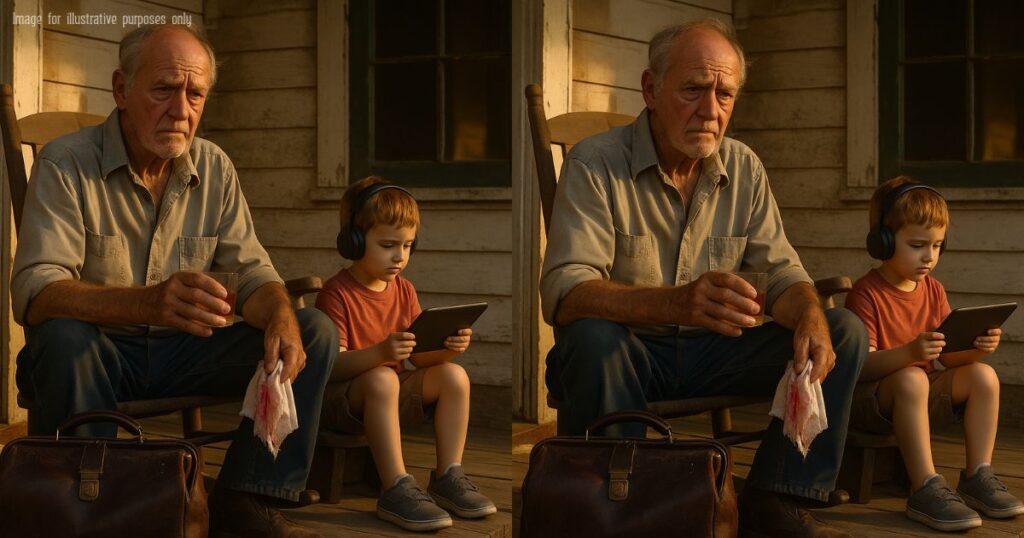We go inside. He puts the medical bag gently on the table like a sacred object. I make hot cocoa, even though it’s July. He asks for whipped cream. I say yes, even though Mary would’ve said no.
We sit in the dim kitchen, and I watch his feet dangle from the chair. I think about all the feet I’ve stitched, braced, wrapped, amputated. About the ones I couldn’t save. About the mothers who cried into my coat and the fathers who wouldn’t look me in the eye because breaking down wasn’t something men did in those days.
“Did it make you sad?” Eli asks suddenly.
“What?”
“When people didn’t get better.”
I take a breath.
“Yes,” I say. “Every single time.”
“Then why did you keep doing it?”
That question hangs in the air like incense.
I lean forward, rest my elbows on the table.
“Because I had to. Because they needed someone who wouldn’t run. Because when a life is slipping, and the night is long, and no one else is coming—you don’t get to walk away.”
He nods.
“Kind of like superheroes,” he says.
I smile, but there’s a lump in my throat.
“No, kid,” I whisper. “Superheroes wear costumes. I wore gumboots and kept Kleenex in my pockets.”
He yawns. It’s late. I help him brush his teeth, tuck him into the guest room with the faded rocket ship blanket. As I close the door, he says, “I hope I get to help people someday too.”
“You already helped me,” I say.
“How?”
“By listening.”
He falls asleep with my stethoscope still around his neck.
Back in the kitchen, I clean up. Wipe the counters like Mary used to. I rinse the mugs and turn off the lights. Before heading to bed, I place the black bag back in the closet, but not on the high shelf anymore—on the bench where Eli can reach it next time.
I stand for a moment and stare at it.
It’s not just a bag.
It’s a memory of a country that once believed in its elders. Where you didn’t have to fight algorithms for attention. Where you could sit on a porch and be, without notifications buzzing.
But I’m not bitter.
I’ve got a grandson who still asks questions.
And that gives me more hope than any election, device, or policy ever could.
Two weeks later, my daughter picks up Eli. He gives me a big hug and a handmade card that says “Dr. Grandpa” in wobbly crayon letters. Inside is a drawing of me, wearing a cape, holding a stethoscope like a sword.
After they leave, I walk back to the porch. The birds are quieter now. The cicadas louder. I sit down in the rocker and close my eyes.
And I realize something.
Maybe I didn’t teach him to be like me.
Maybe I taught him something better.
To care like me.
To show up.
To listen.
To hold the line, even if it shakes in your hand.
Three months later, I get a call from my daughter. Eli wants to be a doctor for Halloween. Not a cartoon doctor. A real one.
“He said real doctors don’t need superpowers,” she tells me. “Just the guts to be there when someone hurts.”
I laugh.
Then cry, just a little.
And I take down the black bag from the bench, polish the latch, and set it by the front door.
Just in case.
You never know who’ll need it next.
Share this if you still believe in the kind of world where wisdom is passed down—not replaced. 💛


